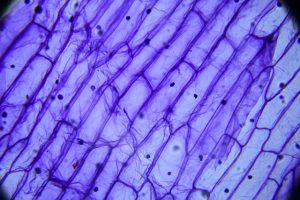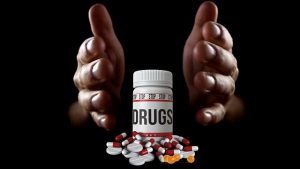Choosing the Right Path: Inpatient vs. Outpatient Drug Rehab Options in NJ
New Jersey offers a range of drug rehab options, including both inpatient and outpatient programs designed to cater to different levels of substance use disorder severity. Inpatient care provides an intensive treatment environment for those with severe a…….

New Jersey offers a range of drug rehab options, including both inpatient and outpatient programs designed to cater to different levels of substance use disorder severity. Inpatient care provides an intensive treatment environment for those with severe addiction, offering round-the-clock care, personalized treatment plans, and structured settings that promote sobriety by removing triggering environments. Outpatient programs allow individuals to maintain their daily responsibilities while receiving treatment, making them suitable for those with work or family commitments. Both types of programs are staffed by qualified professionals and offer aftercare support for sustained recovery. The choice between inpatient and outpatient care depends on factors like the severity of addiction, financial considerations, available support systems, and proximity to a treatment center. New Jersey's drug rehab system emphasizes personalized care and holistic treatments, with a focus on both physical health and psychological well-being. Individuals can choose from various tailored outpatient options that provide structured support and integrate recovery into daily life, or opt for more comprehensive inpatient care for intensive treatment and healing. It's crucial to consult healthcare providers when deciding between these programs to ensure the most effective path to long-term recovery from substance abuse.
1. In New Jersey, individuals seeking recovery from substance use disorders face the decision of selecting between inpatient and outpatient drug rehab programs, each offering distinct advantages and structures tailored to diverse needs.
2. The choice hinges on various factors, including personal circumstances, treatment goals, and the intensity of care required, which this article will elucidate to assist individuals in making an informed decision.
3. Inpatient programs provide a structured, immersive environment conducive to intensive therapy and medical support, aimed at addressing the multifaceted nature of addiction.
4. Conversely, outpatient programs offer greater flexibility, accommodating those who cannot pause their daily responsibilities for residential treatment but still require comprehensive care.
5. This article will navigate these options, highlighting the benefits and considerations of each, to guide individuals on a path toward sustainable recovery in New Jersey.
6. Additionally, it will outline the transition process from outpatient to inpatient care when necessary, ensuring a seamless and effective continuum of treatment.
- Understanding the Differences Between Inpatient and Outpatient Drug Rehab Programs in New Jersey
- Key Factors to Consider When Choosing Between Inpatient and Outpatient Drug Rehab Centers in NJ
- The Benefits of Inpatient Drug Rehab in New Jersey: A Comprehensive Treatment Approach
- Exploring the Flexibility and Structure of Outpatient Drug Rehab Programs in New Jersey
- How to Transition from Outpatient to Inpatient Drug Rehab in NJ for a Personalized Recovery Journey
Understanding the Differences Between Inpatient and Outpatient Drug Rehab Programs in New Jersey

Inpatient and outpatient drug rehab programs in New Jersey offer distinct pathways to recovery tailored to individual needs. Inpatient rehabilitation, often referred to as residential treatment, requires individuals to live at the facility for a designated period. This immersive environment provides structured care around the clock, which is crucial for those with severe substance use disorders or co-occurring mental health issues. Patients in inpatient programs engage in therapy sessions, participate in educational groups, and receive personalized treatment plans that address their unique challenges. The intensive support and separation from triggering environments enhance the chances of sustained sobriety.
On the other hand, outpatient drug rehab programs in New Jersey allow individuals to continue living at home while receiving treatment during the day. These programs offer greater flexibility for those who have responsibilities such as work or family care that cannot be put on hold. Outpatient treatments include therapy, counseling, and support groups, all designed to help patients develop coping strategies to manage their addiction. This level of care is often a stepping stone for those transitioning from inpatient treatment or as a primary treatment option for less severe cases. Both inpatient and outpatient drug rehab programs in New Jersey are equipped with qualified professionals dedicated to guiding individuals through the recovery journey, and they both offer access to aftercare support to maintain long-term sobriety. Drug rehab options in New Jersey are comprehensive and designed to meet a wide range of needs, ensuring that those seeking help have multiple avenues for effective treatment.
Key Factors to Consider When Choosing Between Inpatient and Outpatient Drug Rehab Centers in NJ

When contemplating the decision between inpatient and outpatient drug rehab centers in New Jersey, several key factors should be carefully considered to ensure the most effective treatment plan for recovery. Firstly, the severity of substance use disorder is a critical determinant. Inpatient programs offer structured environments that provide around-the-clock care and support, which can be particularly beneficial for individuals with severe addiction challenges. This level of supervision and immediate access to medical professionals can be crucial in managing withdrawal symptoms and addressing underlying health issues. On the other hand, outpatient programs accommodate those who have a more manageable addiction, allowing patients to maintain their daily responsibilities while receiving treatment. These programs offer flexibility and privacy, which can be comforting for individuals apprehensive about entering a residential setting.
Another significant factor is the level of support available from family and friends. Inpatient rehab typically requires a temporary relocation, which may not be feasible for everyone due to personal or professional obligations. Outpatient programs, however, can be more convenient for those with strong support systems at home who can assist with the recovery process. Additionally, the cost of treatment is an important consideration; inpatient care often comes with higher expenses due to the comprehensive services provided. Prospective clients should also evaluate the range of therapies and aftercare options offered by each program, as a successful recovery often relies on a tailored approach that continues beyond initial treatment. Finally, geographical proximity to a drug rehab center in New Jersey can influence the decision, considering the need for easy access and the importance of local support networks during and after the rehabilitation process. It’s essential to research and compare various inpatient and outpatient drug rehab centers in NJ to determine which one aligns with your unique needs and circumstances.
The Benefits of Inpatient Drug Rehab in New Jersey: A Comprehensive Treatment Approach

New Jersey offers a range of comprehensive treatment approaches within its inpatient drug rehab programs, designed to address the multifaceted nature of substance use disorders. These programs provide a structured and supportive environment that is conducive to healing and recovery. Patients engage in round-the-clock care, which includes medical monitoring and therapeutic interventions tailored to their specific needs. The intensive therapy sessions, often combining behavioral, cognitive, and group therapies, are complemented by holistic treatments such as nutrition counseling, exercise programs, and wellness activities. This approach not only targets the physical aspects of addiction but also focuses on the psychological and emotional well-being of individuals. By removing external distractions and triggers in a drug-free environment, clients can concentrate on their recovery journey without the pressures or temptations of daily life. The New Jersey inpatient drug rehab centers are staffed with qualified professionals, including doctors, nurses, counselors, and addiction specialists, who work cohesively to create personalized treatment plans that optimize the chances for long-term sobriety and sustainable recovery. Drug rehab programs in New Jersey are committed to providing patients with the tools and support necessary to overcome substance abuse and lead a healthier, more fulfilling life.
Exploring the Flexibility and Structure of Outpatient Drug Rehab Programs in New Jersey

In New Jersey, individuals seeking treatment for substance use disorders have access to a variety of rehabilitation options, with outpatient drug rehab programs standing out for their flexibility and structured support. These programs are designed to accommodate the diverse needs of patients who wish to maintain their daily responsibilities, such as work, school, or family commitments, while receiving comprehensive care. Outpatient rehab in New Jersey offers a range of services including counseling, therapy, and sometimes medication-assisted treatment, allowing individuals to engage with treatment on a part-time basis. This model of care provides patients with the opportunity to gradually integrate healthy routines and coping strategies into their daily lives under the guidance of experienced professionals. The structured nature of these programs ensures that participants adhere to a consistent schedule of treatment sessions, which can be critical for long-term recovery. With drug rehab New Jersey facilities offering both group and individual therapy, clients benefit from peer support networks alongside personalized treatment plans tailored to their specific circumstances and challenges. This hybrid approach combines the benefits of professional medical oversight with the flexibility to manage personal commitments, making outpatient drug rehab a viable option for many seeking recovery in New Jersey.
How to Transition from Outpatient to Inpatient Drug Rehab in NJ for a Personalized Recovery Journey

When considering a transition from outpatient to inpatient drug rehab in New Jersey, it’s crucial to evaluate one’s unique circumstances and needs for a successful recovery journey. Outpatient programs offer flexibility and allow individuals to maintain their daily responsibilities while receiving treatment. However, certain situations may necessitate a more intensive approach where around-the-clock care is required. Inpatient drug rehab in New Jersey provides a structured environment that can be beneficial for those who need a higher level of support to overcome substance abuse challenges. This transition involves careful planning and coordination between healthcare providers to ensure a seamless shift in care. It’s essential to assess the individual’s progress, commitment to sobriety, and any co-occurring mental health issues that may need immediate attention. The New Jersey inpatient facilities offer personalized treatment plans that address the root causes of addiction and promote long-term recovery. This level of care often includes medical monitoring, therapy sessions, and a supportive community that can help individuals focus solely on their healing without the distractions of daily life. Those looking to make this transition should discuss their options with their treatment team, including doctors, therapists, and case managers, who can guide them through the process and help determine if an inpatient program is the right next step for their personalized recovery journey in New Jersey.
When addressing substance abuse, the path to recovery is as unique as the individual themselves. In New Jersey, the landscape of drug rehab options—ranging from inpatient to outpatient programs—provides tailored approaches to aid in this transformative journey. It’s crucial for those seeking treatment to understand the nuances between these programs, as highlighted in our exploration of their differences, benefits, and structural elements. Whether through the intensive support of inpatient care or the flexible scheduling of outpatient services, there is a drug rehab program in New Jersey equipped to meet the needs of every individual. As you consider your next steps, remember that the choice between inpatient and outpatient drug rehab in NJ is not definitive; it’s a continuum that can be navigated based on personal circumstances, commitment levels, and specific recovery goals. Ultimately, the goal is to find a program that aligns with your unique situation, offering the support and resources necessary for sustained recovery—and in New Jersey, such options abound.









